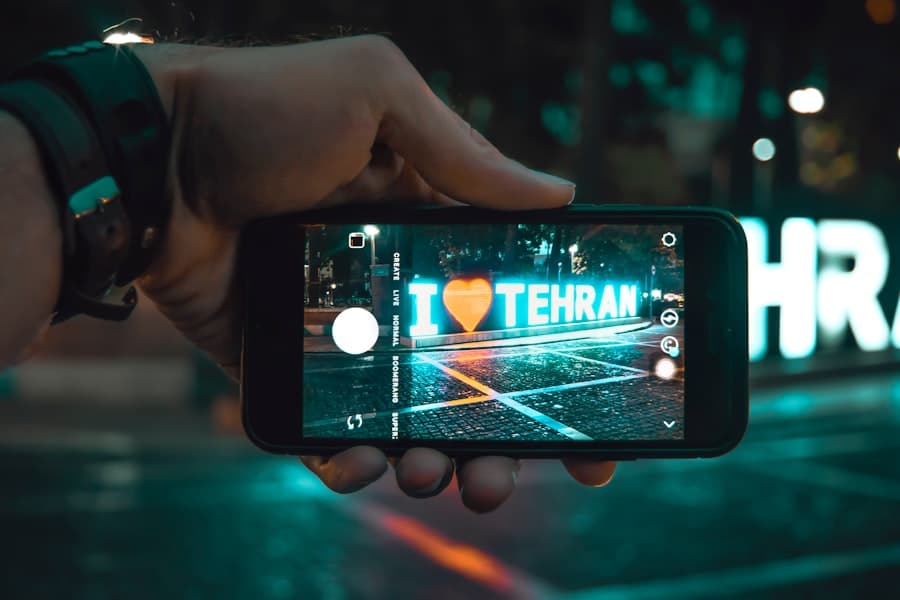In recent years, the landscape of technology has undergone a significant transformation, marked by the emergence of ultra-personalized tech experiences. This shift is characterized by the ability of devices and applications to tailor their functionalities and content to individual users based on their preferences, behaviors, and needs. The proliferation of smart devices, coupled with advancements in machine learning and data analytics, has enabled companies to create highly customized experiences that resonate with users on a personal level.
For instance, streaming services like Netflix and Spotify utilize sophisticated algorithms to analyze user behavior, allowing them to recommend content that aligns with individual tastes. This level of personalization not only enhances user engagement but also fosters a deeper connection between consumers and technology. Moreover, the rise of ultra-personalized tech experiences is not limited to entertainment platforms.
E-commerce giants like Amazon have revolutionized online shopping by employing recommendation engines that suggest products based on previous purchases and browsing history. This approach not only streamlines the shopping experience but also increases the likelihood of conversion, as consumers are presented with items that are more relevant to their interests. As technology continues to evolve, the expectation for personalized experiences is becoming a standard rather than an exception, pushing businesses to innovate continuously in order to meet consumer demands.
Key Takeaways
- Ultra-personalized tech experiences are on the rise, offering consumers tailored and individualized interactions with technology.
- These personalized experiences have a significant impact on consumer decision-making, influencing purchasing choices and brand preferences.
- Data and artificial intelligence play a crucial role in enabling ultra-personalization, allowing tech companies to analyze and understand consumer behavior at a granular level.
- Customization and personalization are key features of tech products, allowing consumers to have unique and tailored experiences with their devices and services.
- Privacy concerns and ethical considerations arise with the collection and use of personal data for ultra-personalization, prompting discussions about the balance between personalization and consumer privacy.
The Impact on Consumer Decision-Making
The advent of ultra-personalized tech experiences has profoundly influenced consumer decision-making processes. With tailored recommendations and curated content at their fingertips, consumers are more likely to make informed choices that align with their preferences. This shift has led to a more streamlined decision-making process, where users can quickly identify products or services that meet their needs without sifting through irrelevant options.
For example, when shopping online, a consumer may receive personalized suggestions based on their previous interactions, significantly reducing the time spent searching for suitable items. Additionally, the impact of personalization extends beyond mere convenience; it also enhances consumer confidence in their choices. When users receive recommendations that resonate with their tastes, they are more likely to perceive these suggestions as trustworthy.
This phenomenon is particularly evident in the beauty and fashion industries, where personalized quizzes and virtual try-on features allow consumers to explore products that suit their unique styles. As a result, the decision-making process becomes less daunting, empowering consumers to make choices that reflect their individuality.
The Role of Data and Artificial Intelligence

At the heart of ultra-personalized tech experiences lies the intricate interplay between data and artificial intelligence (AI). Companies harness vast amounts of data generated by user interactions to gain insights into preferences and behaviors. This data-driven approach enables businesses to create algorithms that predict what users might want or need next.
For instance, social media platforms like Facebook and Instagram analyze user engagement patterns to curate feeds that showcase content most likely to capture attention. By leveraging AI, these platforms can continuously refine their algorithms based on real-time data, ensuring that users are consistently presented with relevant content. Furthermore, the role of AI extends beyond mere data analysis; it also encompasses natural language processing and machine learning capabilities that enhance user interactions.
Virtual assistants like Amazon’s Alexa and Apple’s Siri exemplify this trend by utilizing AI to understand user commands and preferences. As these technologies evolve, they become increasingly adept at providing personalized responses and recommendations, creating a seamless user experience. The integration of AI into tech products not only enhances personalization but also fosters a sense of familiarity and comfort for users as they interact with technology.
Customization and Personalization in Tech Products
Customization and personalization are often used interchangeably, yet they represent distinct concepts in the realm of technology. Customization refers to the ability of users to modify a product or service according to their preferences, while personalization involves tailoring experiences based on user data and behavior. In tech products, both elements play a crucial role in enhancing user satisfaction.
For example, smartphone manufacturers allow users to customize their devices through themes, wallpapers, and app arrangements, enabling individuals to create a unique interface that reflects their personality. On the other hand, personalization is exemplified by features such as predictive text in messaging apps or personalized news feeds in mobile applications.
The combination of customization and personalization creates a holistic approach that caters to individual preferences while also anticipating future needs. As consumers increasingly seek products that resonate with their identities, tech companies are compelled to innovate continuously in order to offer both customizable options and personalized experiences.
Privacy Concerns and Ethical Considerations
While the rise of ultra-personalized tech experiences offers numerous benefits, it also raises significant privacy concerns and ethical considerations. The collection and analysis of personal data have become integral to creating tailored experiences; however, this practice often leads to questions about data security and user consent. Consumers are becoming increasingly aware of how their information is being used, prompting calls for greater transparency from companies regarding data collection practices.
High-profile data breaches have further fueled these concerns, leading individuals to question whether the convenience of personalization is worth the potential risks associated with sharing personal information. Moreover, ethical considerations extend beyond privacy concerns; they also encompass issues related to algorithmic bias and discrimination. If not carefully managed, algorithms can inadvertently perpetuate existing biases present in the data they are trained on.
For instance, if a recommendation system is primarily trained on data from a homogenous group of users, it may fail to provide equitable suggestions for individuals from diverse backgrounds. As businesses strive for ultra-personalization, they must navigate these ethical dilemmas by implementing robust data governance frameworks and ensuring that their algorithms are designed to promote inclusivity rather than exclusion.
The Future of Ultra-Personalized Tech Experiences

Looking ahead, the future of ultra-personalized tech experiences appears promising yet complex. As technology continues to advance at an unprecedented pace, we can expect even more sophisticated methods for tailoring experiences to individual users. Emerging technologies such as augmented reality (AR) and virtual reality (VR) hold immense potential for creating immersive personalized experiences that engage users in entirely new ways.
For instance, AR applications could allow consumers to visualize how furniture would look in their homes before making a purchase decision, enhancing the shopping experience through personalization. Additionally, advancements in AI will likely lead to more intuitive systems capable of understanding context and emotional nuances in user interactions. Imagine a virtual assistant that not only responds to commands but also recognizes when a user is frustrated or overwhelmed, adjusting its responses accordingly.
This level of emotional intelligence could revolutionize how we interact with technology, making it feel more human-like and responsive to our needs. However, as we embrace these innovations, it will be crucial for businesses to prioritize ethical considerations and user privacy in order to build trust with consumers.
The Influence on Brand Loyalty and Customer Satisfaction
Ultra-personalized tech experiences have a profound impact on brand loyalty and customer satisfaction. When consumers feel understood and valued through tailored interactions, they are more likely to develop a strong emotional connection with a brand. This connection fosters loyalty as customers return repeatedly for products or services that resonate with their preferences.
For example, beauty brands that offer personalized skincare recommendations based on individual skin types not only enhance customer satisfaction but also encourage repeat purchases as consumers trust the brand’s expertise. Moreover, personalized experiences can significantly enhance customer satisfaction by addressing specific pain points or desires.
This proactive approach not only improves the overall customer experience but also reinforces brand loyalty as customers feel valued and understood.
Strategies for Businesses to Leverage Ultra-Personalization in Tech
To effectively leverage ultra-personalization in tech, businesses must adopt strategic approaches that prioritize customer insights and data-driven decision-making. First and foremost, companies should invest in robust data analytics capabilities that enable them to gather and analyze user behavior comprehensively. By understanding customer preferences and pain points through data analysis, businesses can create targeted marketing campaigns and product offerings that resonate with their audience.
Additionally, fostering a culture of continuous feedback is essential for refining personalized experiences over time. Companies can implement mechanisms for collecting customer feedback—such as surveys or user testing—to gain insights into how well their personalization efforts are meeting expectations. This iterative approach allows businesses to adapt quickly to changing consumer preferences while ensuring that their offerings remain relevant.
Furthermore, collaboration across departments—such as marketing, product development, and customer service—can enhance the effectiveness of ultra-personalization strategies. By breaking down silos and encouraging cross-functional teams to share insights and collaborate on initiatives, businesses can create cohesive experiences that align with customer expectations at every touchpoint. In conclusion, the rise of ultra-personalized tech experiences has transformed how consumers interact with technology while influencing decision-making processes and brand loyalty.
As businesses navigate this evolving landscape, they must prioritize ethical considerations while leveraging data-driven strategies to create meaningful connections with their audience.
In the rapidly evolving landscape of consumer technology, ultra-personalized tech experiences are significantly influencing consumer behavior by tailoring products and services to individual preferences. This trend is not only reshaping how consumers interact with technology but also how they perceive value and make purchasing decisions. A related article that delves into the impact of technology on consumer behavior is

